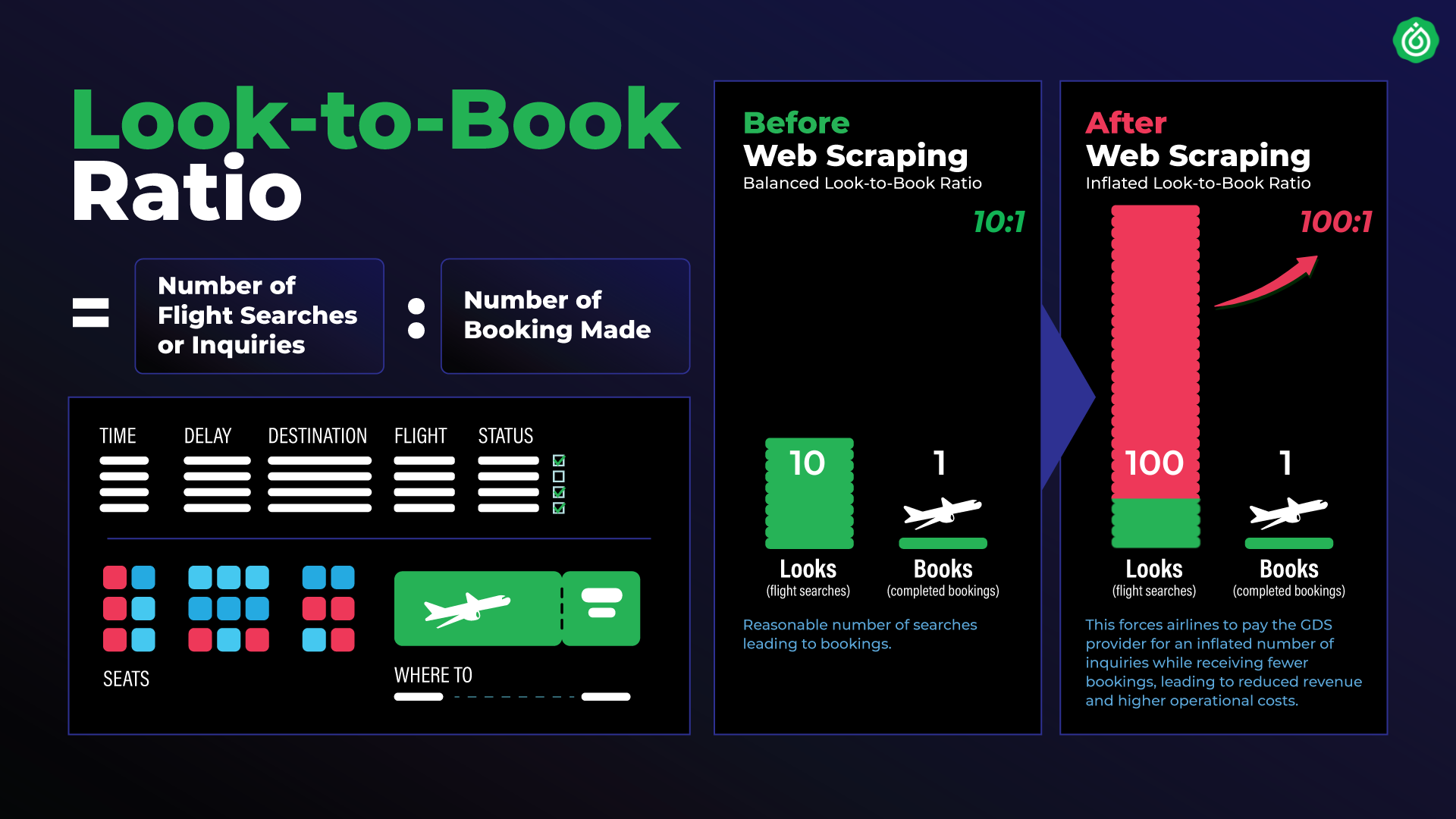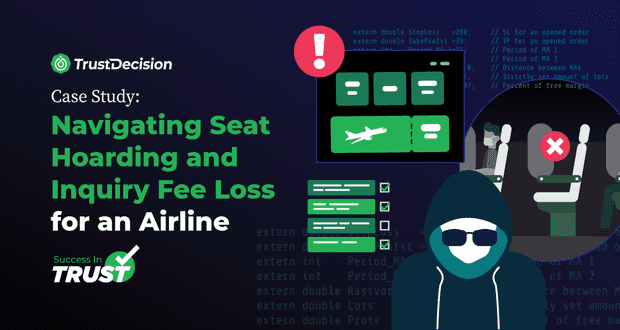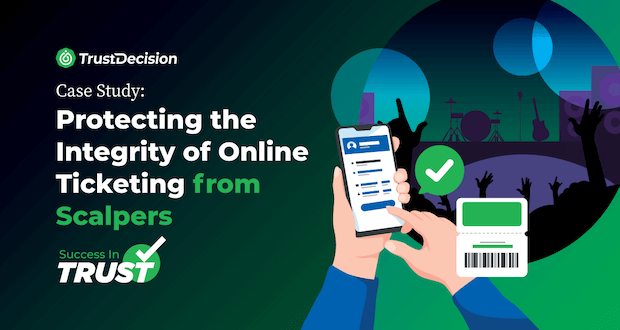The airline industry is a dynamic, fast-evolving sector fueled by rising global travel demand and rapid technological advancements. However, fraud risks have also escalated, resulting in significant financial losses and operational disruptions. Seat hoarding and the unnecessary loss of Global Distribution System (GDS) inquiry fee loss continues to be a growing risk for most airlines.
In this case study, we’ll dive into a comprehensive fraud risk management strategy of a Chinese airline company, including the scenario analysis, prevention techniques, and measurable outcomes within a 30-day implementation. By addressing these risks head-on, airlines can protect their assets and improve overall profitability.
The Challenge
Seat Hoarding
Imagine booking a flight for a trip during the travel season, only to find that all your bucket list routes are sold out. You might think it’s because the peak season is approaching and tickets are being booked quickly, but in reality, fraudsters could be hoarding those tickets to make a profit.
Seat hoarding is the practice where fraudsters reserve multiple seats on a flight, often to block options or resell at a higher price, reducing availability for other passengers. It has been an increasing problem for airlines. Here’s how it works and how fraudsters exploit it:
- Taking Advantage of Flexible Policies: Fraudsters book multiple seats using flexible payment or cancellation policies, allowing them to hold the seats without paying right away.
- Targeting High-Demand Flights: Fraudsters often do this on popular flights or during peak travel seasons, making it harder for genuine customers to find seats.
- Reselling the Seats: Some fraudsters aim to resell the seats for at inflated prices as demand rises closer to the departure date. This ties back to the point No. 2 as above of creating a fake demand, which caused genuine customers unable to book the flight at the first place.
- Last-Minute Cancellations: If the seats don't sell, fraudsters could still easily cancel at the last minute -- just before the deadline or simply not show up for the flight. This leaves the airline with vacant seats they can no longer sell
These tactics result in lost of revenue, inefficient seat management, and leaving genuine customers or paying passengers with frustration due to its limited availability and fluctuated pricing. In some cases, seat hoarding may lead to poor performance that fails to meet regulatory requirements, influencing business expansion such as acquiring or leasing new aircraft.
Inquiry Fee Loss on the Global Distribution System
Another challenge lies in managing the complexities of the Global Distribution System (GDS). Airlines rely on the Global Distribution System (GDS) to streamline operations, reduce costs, and expand their reach. This centralized platform connects travel agents, airlines, hotels, and other service providers, enabling seamless global distribution of services.
Global leading GDS providers include Amadeus and Travelport in North America, and Amadeus in Europe. In China, the market is dominated by TravelSky (中航信), which offers services such as Airport Passenger Processing (APP) and Electronic Travel Distribution (ETD). These ETD services include Inventory Control Systems (ICS) and Computer Retail Systems (CRI), serving both domestic and international carriers
However, airlines incur fees for information inquiry processed through GDS providers. This brings us to the look-to-book ratio, a critical metric that measures the proportion of users who view or search for flight options versus those who actually complete a booking. When fraudsters use tactics like web scraping to gather flight information without making any payments, the look-to-book ratio increases significantly. These forces airlines pay the GDS provider for an inflated number of inquiries while receive fewer bookings materialize, leading to reduced revenue and higher operational cost.

The Risks
Risk Analysis: Throughout the Entire Lifecycle
TrustDecision has identified significant fraud risks across all stages of the user lifecycle, including registration, authentication, inquiry, and transaction processes. Notably, by implementing multi-layered defense strategies during the inquiry phase, we intercepted nearly 56 million anomalous requests, effectively mitigating potential malicious activities.
Registration and Login
During registration and login, TrustDecision noticed that the same devices were used repeatedly in a very short period. This unusually high frequency suggests potential automated bot activity or coordinated group behavior aimed at exploiting the system.
Inquiry
During the inquiry stage, it was observed that devices with modified parameters were generating an exceptionally high volume of flight information requests. This level of activity far exceeds typical user behavior, indicating that the requests were likely automated or strategically orchestrated to test the system's defenses and exploit vulnerabilities.
Transaction
In the transaction phase, multiple accounts were found reserving seats without completing the payment process. This pattern not only disrupts the booking system but also results in revenue loss and reduces seat availability for genuine customers—creating inefficiencies in flight operations and leading to customer dissatisfaction.
The Solution
To effectively combat the identified fraud risks, we implemented a comprehensive, multi-layered solution encompassing behavioral monitoring, device fingerprinting, and user segmentation. This strategic approach enables real-time detection and prevention of fraudulent activities while enhancing the user experience for legitimate customers and supporting business growth.
Behavioral Monitoring
TrustDecision monitored multiple aspects of use behavior such as frequency, timing, and relevance, to identify fraudulent activities. Action frequency, such as logins and transactions, flags unusual spikes or patterns that could indicate fraud. By setting alerts for anomalies like multiple rapid requests from the same account or actions occurring outside typical hours, it helped prevent fraud before it escalated. Timing was critical in identifying risks like replay attacks, time-based management helped mitigate these risks by flagging out-of-hours activities and unrealistic transaction speeds. Additionally, by analyzing attributes such as IP addresses, phone numbers, and devices, TrustDecision could identify suspicious patterns that signal potential fraud rings or bot-driven attacks.
Device Fingerprint
In this case, devices played a crucial role in fraud detection and prevention by providing unique identifiers and behavioral patterns that helped identify suspicious activities. A device fingerprint is a unique profile created by analyzing a device's parameters—such as the device model, operating system, browser type and version, user agent string, screen resolution, and more. TrustDecision collected over 150 such parameters to generate detailed risk profiles. By analyzing this data, we generated numerous device risk labels like debugger, group control, emulator, and others. This provided our client with clear insights into why specific devices posed a risk, enabling them to act swiftly and prevent fraud in real time.
User Segmentation
TrustDecision classified users into different segments with risk labels such as risky, high-value, or common. This segmentation struck a balance between fraud prevention and business growth. This has delivered several key benefits:
- Improved Fraud Detection: By targeting high-risk segments, our system improved fraud detection accuracy, reduced false positives, and enabled more effective intervention.
- Enhanced User Experience: Regular users enjoyed a smoother experience without excessive security checks, leading to higher satisfaction and lower churn rates.
- Increased Revenue: By protecting high-value users and ensuring their transactions were secure, businesses could maintain and grow their revenue streams. Additionally, personalized engagement with high-value users could boost sales, enhance loyalty, and strengthen customer relationships.
The Result
Over a 30-day period, TrustDecision helped the airline company implement a comprehensive and customized risk management system and continuously tracked its performance.
56 Million
Fraudulent activities intercepted
$142K
GDS inquiry fees saved
Conclusion
Ticket hoarding — where fraudsters crawl re-sell tickets exploit flexible booking policies to secure and resell seats or cancel them last-minute has become a significant source of revenue loss and customer dissatisfaction. In the meantime, airlines have to pay unnecessary huge amount of inquiry fee due to the web scraping by fraudsters. This case study demonstrates how a comprehensive, multi-layered approach fraud management that monitors every stage of the user journey can help to mitigate evolving threats. Adopting a well-rounded fraud prevention strategy can help airlines around the world navigate the complexity of international air travel, safeguard revenue and enhance customer satisfaction.







.png)





